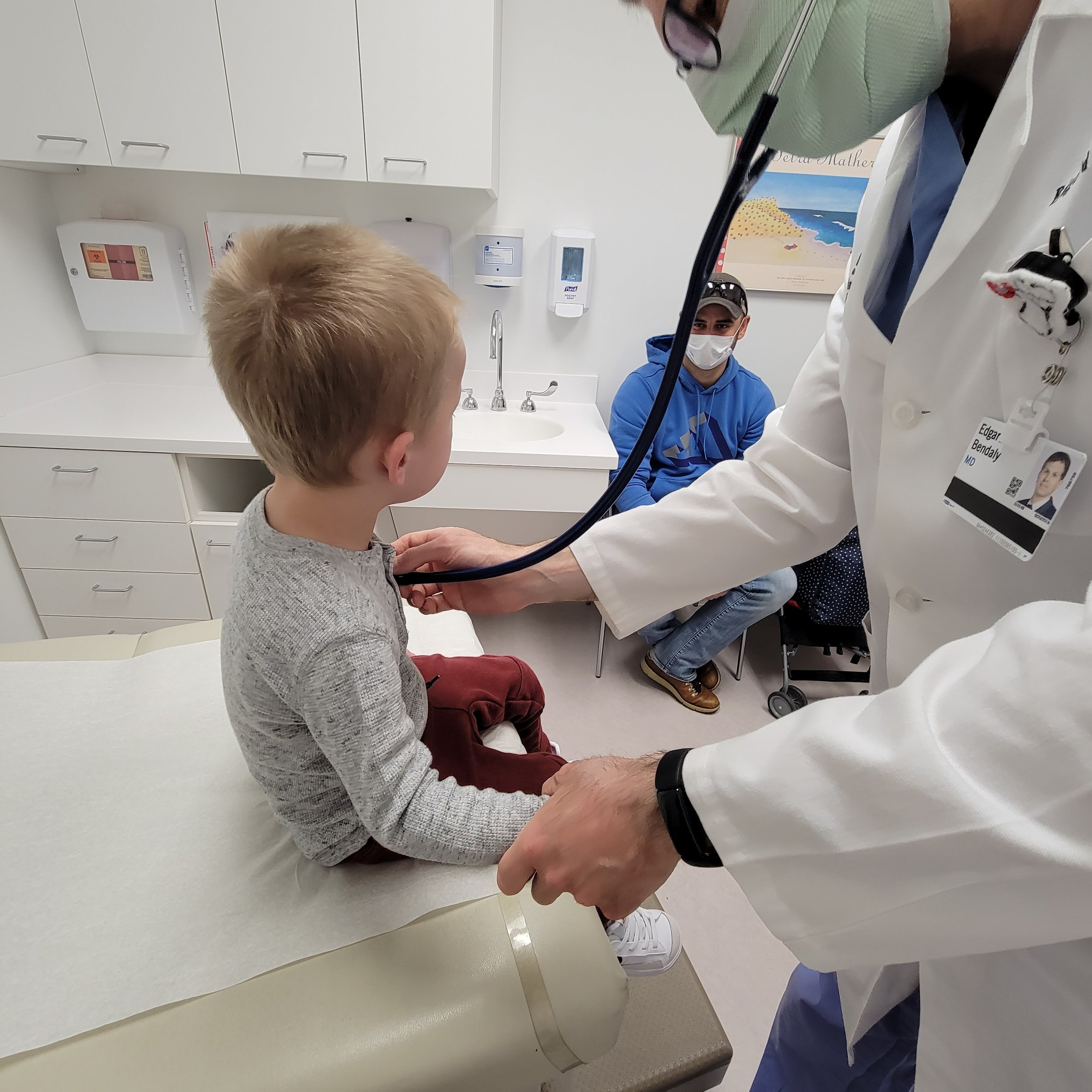Supporting Your Child’s Early Development
Hospitalization during infancy and early childhood can lead to delays in normal development. Limited access to stimulation, social interaction, mobility, and more may cause a child to lag behind their peers. Children who spend time in the Neonatal Intensive Care Unit (NICU) are also more likely to be diagnosed with a developmental disability due to prematurity, birth injury or genetic conditions.
If your child required a lengthy hospital stay at birth or soon after, they may benefit from early intervention support to help them reach physical and cognitive milestones. Kelli Argento, a mother and former elementary educator, shares her story along with resources that can help you find support for your child’s developmental needs.
In my career as an elementary school teacher I saw children of all different abilities come through my classroom. I could watch them side-by-side with their peers and was able to spot learning differences. Since my son was born with a congenital heart defect, I had to keep him away from other children and certain activities to make sure that he stayed healthy between operations. These barriers meant that he had fewer opportunities to socialize and play alongside other kids early in his life. So when it came to evaluating my own child’s needs, my knowledge as an educator could only take me so far. Ultimately it was my instinct as a mom, with the support of a devoted pediatrician, that helped me understand and assess my son’s developmental delays.
Learn the Signs: Act Early
Tracking Developmental Milestones
Tracking your child’s skill development is as important as measuring their height and counting their teeth. The Centers for Disease Control and Prevention (CDC) has developed a program that can help you determine what milestones they are meeting from birth to age five. The Act Early program includes children’s books, checklists, and an app to help you check if your child is meeting, exceeding, or falling short on common developmental milestones.
Remember that while most kids will meet milestones around the same time, every child is different. It’s important that you discuss your concerns with a pediatrician to determine what, if any, interventions may be needed.
Assessing needs and Finding Support
If your pediatrician has concerns about your child’s development they may refer you to an early intervention program. The term Early Intervention describes the services and supports available to babies and young children with developmental delays and disabilities and their families. Services may include speech, physical, and occupational therapy, or other types of therapy that suit the needs of the child and family. Programs are available in every US state and territory at no or reduced cost for any child who is eligible. You can locate a program near you using this list maintained by the CDC. The Help Me Grow program in Ohio is where we started. They provided in-home physical, occupational, and speech therapy until my son turned three and services were provided in our local school district.
Our local board of developmental disabilities was also a great help. I didn’t think my child fell into a category for services they provide, but was surprised by all the support we found. Once we were approved for outreach services through them, different doors opened for us—some of that included financial help. You can find your local developmental disability support options using the online directory and phone number available here.
Services Your Child May Receive
The most common forms of therapeutic services that your child may receive are physical, speech, and occupational therapy. Other support could include behavioral, family or play therapy. These may be offered on their own or as a part of the three main types of therapies.
Physical therapy is often recommended for children’s gross motor skills such as sitting, crawling, walking, and throwing a ball. The goal of physical therapy is to improve children’s strength, balance, and coordination, and ultimately help them meet gross motor milestones.
Occupational therapy helps children with fine motor skills like scribbling, using utensils, fastening clothing, and brushing teeth. Occupational therapy’s goal is to improve patients’ daily living skills.
Speech therapy helps children with communication delays. Early forms of communication include pointing, waving, and babbling. Speech therapists also assist children with feeding and swallowing challenges.
If your instincts are telling you that your child needs support, start a conversation with their pediatrician right away. Support is available for children with delays and disabilities, and a willing parent-advocate is a child’s best tool for meeting their full potential.
Contributed by: Kelli Argento. Kelli is mom to a child born with Hypoplastic Left Heart Syndrome (a congenital heart defect), a former elementary teacher, and author of Wayne the Warrior.


